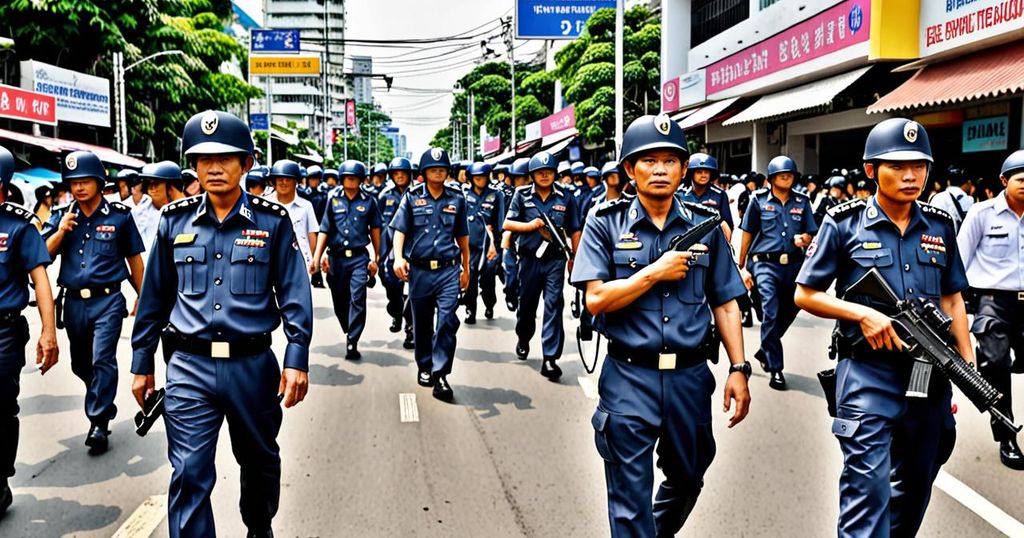Thailand’s army-backed establishment is currently pursuing its political opponents, with former Prime Minister Thaksin Shinawatra among those targeted.
On June 18th, politically charged cases were heard in the courts in Bangkok, drawing attention to the indictment of Thaksin Shinawatra for insulting the monarchy. This move is not unexpected given the establishment’s close ties to the monarchy and the military, and their use of Thailand’s harsh
lèse-majesté
law to target perceived enemies. This law carries sentences of up to 15 years in prison, serving as a tool for the ruling powers to pursue their opponents.
Thaksin Shinawatra, ousted in an army coup in 2006, has been a primary target during his years in exile. As the leader of the populist Pheu Thai movement, he has consistently clashed with the ruling establishment. The current charge against him stems from a claim made nearly a decade ago, in which he implicated the king’s powerful Privy Council in the 2014 coup that took place during his sister’s tenure as prime minister.
This legal development occurs amidst broader constraints on various freedoms, raising concerns about the state of democracy and human rights in Thailand. The legal pursuit of political adversaries, such as the indictment of Thaksin Shinawatra, raises questions about the fairness and impartiality of the judicial system. As Thailand grapples with internal political tensions, it is important to monitor the situation and its implications for the country’s democratic institutions.
During this critical period for Thailand, international attention and scrutiny are crucial for holding the authorities accountable for upholding fundamental rights and ensuring that political processes are transparent and equitable. The ongoing legal pursuits against political opponents underscore the need for robust safeguards to protect the rule of law and prevent the abuse of legal mechanisms for political persecution.
As developments unfold, the global community will closely monitor how the situation in Thailand progresses and whether the rights of individuals, including those in opposition to the ruling powers, are respected and upheld. The outcome of these cases will undoubtedly shape perceptions of Thailand’s commitment to democratic values and the protection of human rights.
In conclusion, the legal actions taken by the army-backed establishment against their political adversaries, such as the indictment of Thaksin Shinawatra, highlight the broader challenges facing Thailand in terms of democratic governance and respect for fundamental rights. This situation requires careful observation and international engagement to uphold the principles of fairness and justice in the country’s legal and political processes.

Leave a Reply